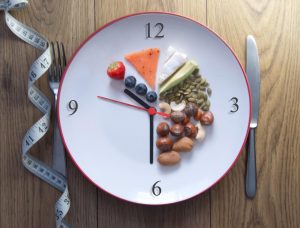IN THE WAKE OF INTERNATIONAL WOMEN’S DAY, I was thinking of penning a meditation on the current political landscape, or maybe an examination of the nature of the glass ceiling in the 21st century. But then I remembered The Bachelor‘s Women Tell All special was on. And that my room mate had just opened a box of Thin Mints. Obviously, the rest is history. First things first: This title is misleading. Along with my vaguely sausage-shaped fingers, I’d say my defining characteristic is a complete lack of shame. And in order for a pleasure to qualify as a guilty one, you need at least a little of that. But! Even if I wasn’t someone who wrote about hemorrhoids and athlete’s foot for a living and didn’t regularly go out in what my friends pointedly refer to as “indoor pants,” I wouldn’t suffer a second of humiliation over my Bachelor fandom. Here’s why:
It touches on topics of sociological value.
Hear me out. For those of you who don’t — or pretend not to — watch, the Women Tell All episode is an anomaly. Slotted before the finale and designed to drag out ratings, it’s structured differently than the rest of the season, revolving around former contestants confronting the bachelor — and each other. Tensions are high. This episode is only 20 minutes old and already the claws have come out… about surprisingly non-trivial topics. OK, fine, as I’m typing this there’s a heated (literally… the vocal fry is strong in some of these ladies) debate about rompers unfolding. But just moments ago contestants were waxing eloquent on race relations, herd mentality, and the way single moms are viewed by society. “I’m full black,” Jubilee defends herself to bi-racial Amber. “How is stating that offensive to you?” “What you’re saying is I’m not black enough,” Amber replies.
Host and white-man-in-residence Chris Harrison sits this one out, as he should. Later ,Olivia will tearfully touch on the ramifications of women deriding each other’s physical appearances. Emily will defend her decision to own her sexuality. True, the Bachelor contestants might punctuate their opinions with passive aggression and more ‘likes’ than is arguably rhetorically necessary. But “at the end of the day” (Take a shot!), they’re making valid observations about social structures and the effects they have on individuals.
It provides a fascinating look at the nature of reality.
Admittedly, this one’s not quite Bachelor-specific. You could argue that any reality show offers a unique commentary on the eponymous reality it claims to represent. But The Bachelor is a lot more relatable than most. It’s safe to say most of us will never be a Kardashian or real housewife living Orange County. But haven’t we all been in the position of falling for someone, in spite of the possibility that they don’t reciprocate our feelings? Of being jealous when the object of our affection spends time with someone else? Of feeling torn between being vulnerable and staying guarded? Of bringing our mini horse along on our televised first date? K, scratch that last one. But for all its helicopters and rose ceremonies and all-around ridiculousness, The Bachelor shows us the heavily-edited, possibly-scripted side of “real” situations not at all unfamiliar to us. Which, depending on how many glasses of Pinot you’ve had, can be vastly entertaining or a bit depressing. There’s an undeniable pathos to an everywoman weeping because she’s not sure if an “I love you” is heartfelt. We’ve all been there, even if our doubts don’t stem from the possibility of producer-mediated, manufactured emotion. In matters of the heart, we’ve all questioned what’s real and what isn’t. You, me, Lauren B, and Aristotle.
It offers the (subversively feminist) idea that female-based social currency has merit, too.
Listen, the only thing that bugs me more than a woman pretending to be interested in sports for a dude’s approval is when people assume a woman is pretending to be interested in sports for a dude’s approval. Of course there are plenty of women who are legitimate sports fans. Of course. But from golfing with clients to team-building softball games to simple water cooler chat about last night’s big match, sports are a workplace bonding staple. And there’s no denying that sports are still largely perceived as a male-dominated domain. In fact, some women report feeling frustrated — even professionally stunted — by their lack of expertise, and subsequent exclusion, from the topic. And while The Bachelor represents all women about as much as sports represent all men, female-dominated pop culture touchstones that level the schmoozing playing field (pun slightly intended) could be potentially revolutionary. The Bachelor is one of the most popular series on the air right now. Splashed across tabloids, it’s hard to ignore. And if one man hears his female co-workers discussing last night’s episode and chimes in, maybe even offers to make an employee fantasy (suite) bracket, then scores of sobbing spray-tanned women will not have been banished to the rejection limo in vain.

















